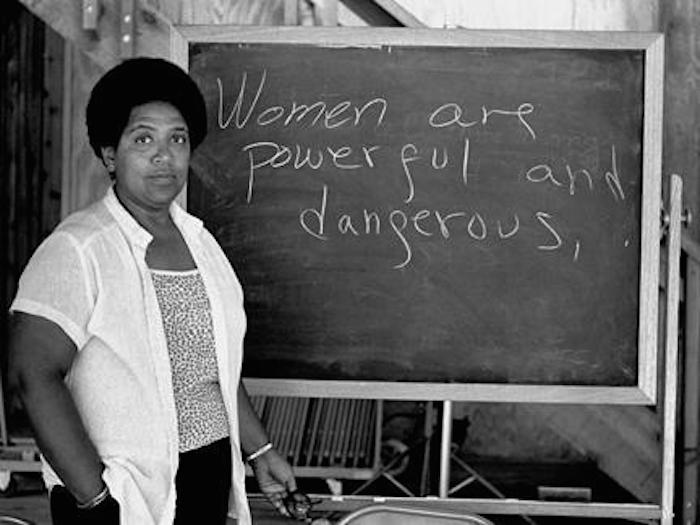
Source
Contemporary feminist thought
Lorde set out to confront issues of racism in feminist thought. She maintained that a great deal of the scholarship of white feminists served to augment the oppression of black women, a conviction that led to angry confrontation, most notably in a blunt open letter addressed to the fellow radical lesbian feminist Mary Daly, to which Lorde stated she received no reply. Daly's reply letter to Lorde, dated 4½ months later, was found in 2003 in Lorde's files after she died.
This fervent disagreement with notable white feminists furthered her persona as an outsider: "in the institutional milieu of black feminist and black lesbian feminist scholars [...] and within the context of conferences sponsored by white feminist academics, Lorde stood out as an angry, accusatory, isolated black feminist lesbian voice".
The criticism did not go only one way: many white feminists were angered by Lorde's brand of feminism. In her 1984 essay "The Master's Tools Will Never Dismantle the Master's House", Lorde attacked underlying racism within feminism, describing it as unrecognized dependence on the patriarchy. She argued that, by denying difference in the category of women, white feminists merely passed on old systems of oppression and that, in so doing, they were preventing any real, lasting change. Her argument aligned white feminists with white male slave-masters, describing both as "agents of oppression".
In so doing, she angered many white feminists, who saw her essay as an attempt to privilege her identities as black and lesbian, and assume a moral authority based on suffering. Suffering was a condition universal to women, they claimed, and to accuse feminists of racism would cause divisiveness rather than heal it. In response, Lorde wrote "what you hear in my voice is fury, not suffering. Anger, not moral authority".
